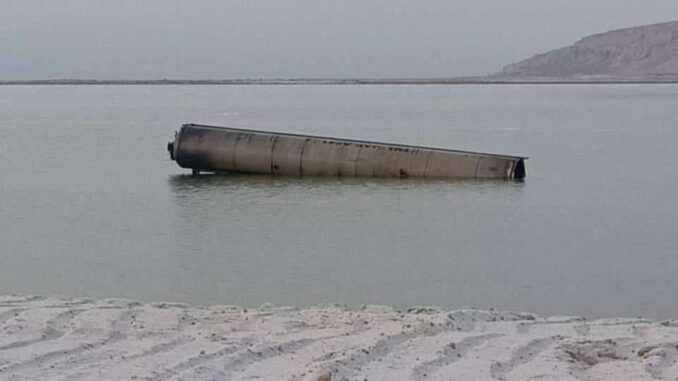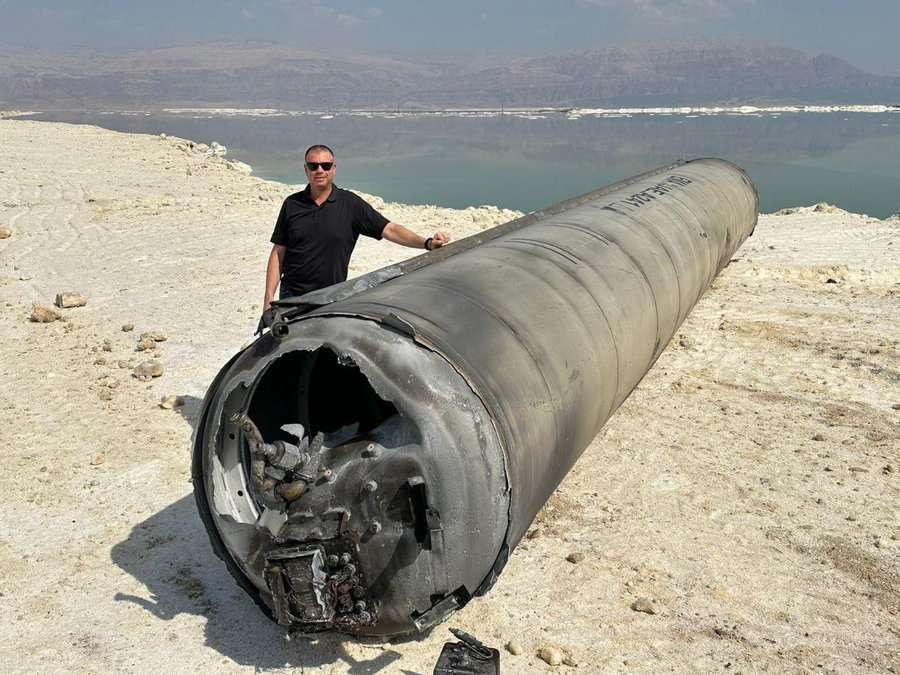
Patricia Marins
Days ago, Iran launched a historic attack against Israel, where the Israeli air defenses were able to intercept 99% of the threats. Interestingly, the same defenses weren’t able to intercept the same number of homemade rockets built by Hamas.
Despite having a excellent and integrated defense system, 99% of effectiveness is a fabtasy for anyone who know AD systems. Probably they are using the same guy who provide data for the Ukrainian media.
It was a historic attack without any victims; not a single vehicle or building was damaged.
This is in contrast to the Iranian attacks in Iraq, during the last year, where their missiles proved to be highly accurate.
It seems Iran had to produce a narrative for domestic propaganda, and the USA helped the regime with that. And what about Israel? It made brilliant propaganda of their systems, dissuading other enemies but, above all, demonstrating that Netanyahu was ready to predict and counter this attack. This is exactly what his government was looking for, especially since this was a strong point of criticism in Israeli society: lack of military intelligence and organization.
Just one day after this historic attack, the airspace was opened again, as no debris from the Iranian drones was found. Why? Nobody analyzed these parts. Did they carry explosives? What kind of drone was used?
For Iran the propaganda about their missiles was also important.
But The Iranian ballistic missiles aimed at an airbase in the middle of the desert, where they didn’t hit anything. Why that base and how was Israel informed about the attack? Obviously, we know the answer.
Iran ignored the dozens of other bases around Israel and chose one in the middle of the desert. Essentially, everything was planned to minimize casualties.
No, in normal conditions Israel don’t absorb an real attack in silence..
Good for Iranian propaganda, good for Netanyahu’s government, good for the US who does not want problems in an electoral year, and, above all, good for humanity.

Understanding the Iran situation
Iran is a significant player, but lacks relevant allies. While they have an important partnership supplying Russia with drones and ammunition, the Russians are not seen as trustworthy allies. In more than one instance, the Russians delayed or did not deliver weapons to Tehran even after signing contracts.
The Russian and Israeli involvement in the arms industry is solid and leaves no room for a reliable Russian-Iranian alliance. This situation forces Iran to rely on underground diplomatic deals and heavily invest in a defense industry.
Currently, Iran possesses more anti-air systems than all of Europe combined, including some systems with hypersonic missiles. The recent display of military power, where Iran simulated an attack on Israel, is part of their underground diplomacy.
Unlike other modern armies, the Iranian military must contend with both domestic and external military forces, consisting of almost 100,000 men organized into several militias. The threat level was very close to escalation, potentially creating multiple fronts for Israel and posing a significant challenge for Biden in an election year.
The US played a strategic game in this scenario, ensuring all sides were content with the solution. A more undesirable outcome would be the weakening of the IRGC’s leadership position controlling Hezbollah branches.
Looking at the long-term prospects for Iran, it remains unclear to me. However, it is evident that in certain research fields, Iran is becoming more advanced than most European countries.
In the next 7-10 years, Iranian missiles may be capable of reaching Western Europe, and the country is set to possess a top-tier drone fleet. Despite statements from Israel or Ukraine, the anti-air systems are still far from achieving a 99% interception rate.
It seems crucial to engage in dialogue with Iran. If the West does not act, China may take initiative. The Chinese deal with Iran is increasingly significant, especially with Saudi Arabia nearing their own ballistic missile program, largely based on Chinese technology.
For how many times these mimic attacks can calm down the situation? it is fragile and can work just for a short time.

Leave a Reply